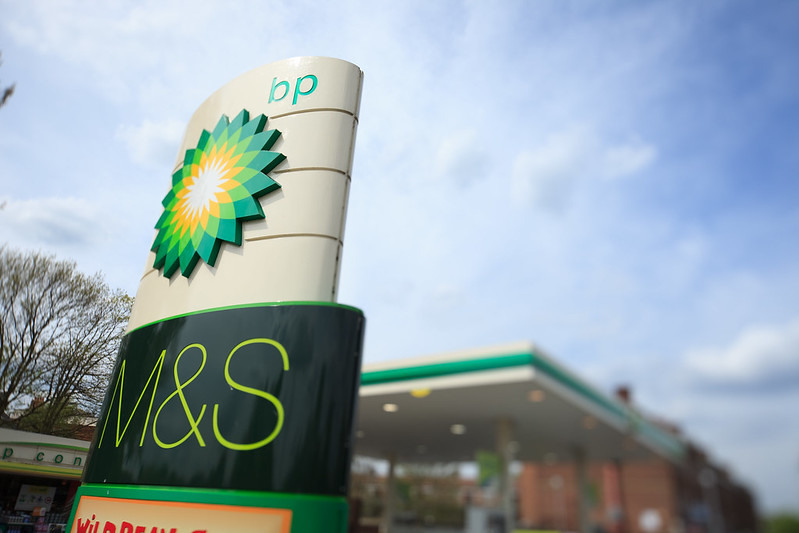Oil and gas giant BP confirmed it more than doubled its annual profit in 2022 to £23 billion ($27.7 billion), up from the £10.6 billion ($12.8 billion) witnessed in 2021, owing to soaring oil and gas prices.
The profits witnessed by BP across 2022 have been propelled by soaring oil and gas costs amid the war in Ukraine as the UK transitions away from Russian imported fossil fuels.
Controversially, BP has also slashed its 2030 emissions reduction target from 35-40% to 20%- 30%, when compared with 2019 levels, as it aims to increase production in this sector.
These profits have been released just a week after Shell recorded its “highest-ever” annual profits in 2022 amounting to £32.2 billion ($38.66 billion). On these profits, Shell paid £1.86 billion ($2.23 billion) in taxation due to both the UK and EU windfall taxes.
The UK Energy Profits Levy, also known as the windfall tax, has allowed both BP and Shell to both record soaring profits for 2022. BP confirmed that through this legislation, it would pay a total of £582 million ($700 million) in total for the UK windfall tax alone.
This has sparked yet another heated debate around the UK’s windfall tax and the lack of a “level playing field”.
This has seen many in the industry again call for the UK Government to increase the levy and eliminate any loopholes. Ed Miliband, Shadow Climate and Net Zero Secretary, Labour MP for Doncaster North, again referenced the lack of a “proper” windfall tax by the UK Government.
“Throughout 2022, bp continued to focus on delivery of our Integrated Energy Company strategy. We are helping provide the energy the world needs today and – at the same time – investing with discipline into our transition and the energy transition – as demonstrated by the Archaea Energy acquisition,” commented Bernard Looney, CEO of BP, on the company’s financial results.
“We are strengthening bp, with our strongest upstream plant reliability on record and our lowest production costs in 16 years, helping to generate strong returns and reducing debt for the 11th quarter in a row. Importantly, we are delivering for our shareholders – with buybacks and a growing dividend. This is exactly what we said we would do and will continue to do – performing while transforming.”
The wholesale gas market saw severe volatility towards the end of 2021 and across 2022 causing widespread issues across the UK. Many households were under threat of increased energy bills and living costs and thus the UK Government intervened via the Energy Prices Bill – capping the cost of energy for both businesses and households.
BP continued to expand its oil and gas business, capitalising on the lucrative market in 2022 and increased production in this area. This is cause for more concern as BP it would miss its previously established carbon emissions reduction target for 2030. This is despite renewable energy being touted as one of the primary methods of escaping the current crisis.
TUC general secretary Paul Nowak highlighted that many households across the UK continue to suffer whilst oil and gas companies continue to profit from the circumstances.
“As millions struggle to heat their homes and put food on the table, BP are laughing all the way to the bank. Hard-pressed families will rightly feel furious – they are being treated like cash machines,” said Nowak.
“This boils down to political choices. Ministers are letting big oil and gas companies pocket billions in excess profits. But they are refusing to give nurses, teachers and other key workers a decent pay rise. We need a government on the side of working people – not fat cat energy producers.
“That means imposing a higher windfall tax on the likes of BP and Shell. It means giving public servants fair pay. And it means giving households extra financial support as bills rise this April.”






